With all the stories on the Internet it can be difficult to always stay in the know. To help, we’ve searched the web for interesting pieces of news, videos and tips to help you start off your week on the right foot.
1. American Muslims Should Reject The Politics of Normalcy

People take photos of each other before a group prayer session for the Muslim holiday Eid al-Adha in the Brooklyn borough of New York City, U.S., September 12, 2016. REUTERS/Stephanie Keith
“Muslims thus [due to political rhetoric] feel obligated to broadcast their all-American identity, whether by disguising their foreign-sounding names, changing their appearances, avoiding their native tongues, or obscuring their religious affiliations,” writes Atlantic columnist Nafisa Eltahir.
In her piece Eltahir writes that Muslim Americans cannot prevent discrimination by simply trying to blend in.
“Muslims thus attempt to combat Islamophobia by simply blending in,” Eltahir writes. “But true acceptance for Muslims will only come when those Muslims who wear their religious differences openly are seen as being just as American as those whose choices hew closer to the norm.”
[tweetthis]”True acceptance for Muslims will only come when those Muslims who wear their religious differences openly are seen as being just as American as those whose choices hew closer to the norm.”[/tweetthis]
2. I Turned Down Playboy and Still Support Women’s Choice to Do It
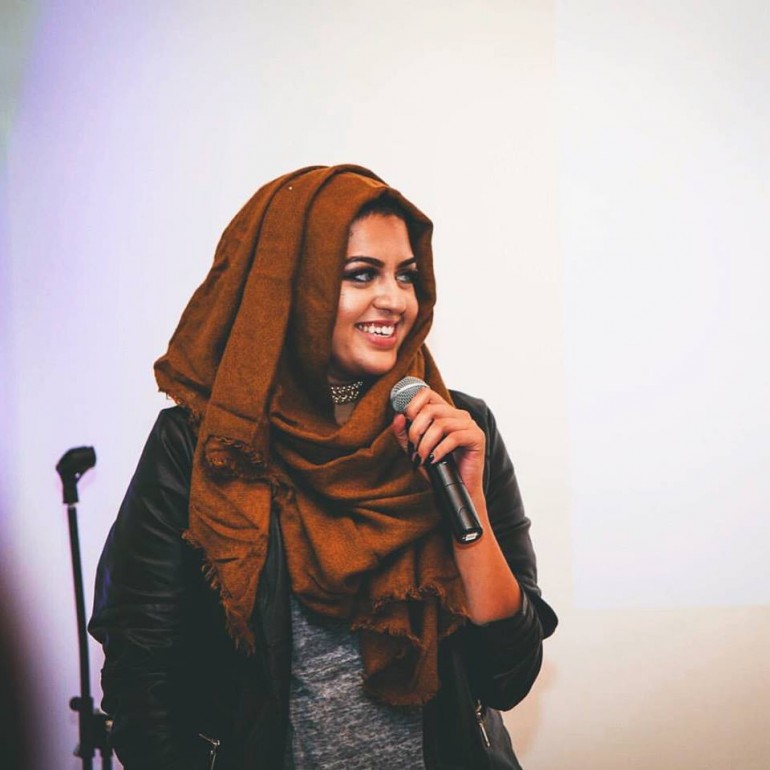
Amani Al-Khatahtbeh is the founder and editor-in-chief of Muslim Girl.
MuslimGirl Editor-in-Chief Amani Al-Khatahbeh writes in response to the Internet’s backlash over Noor Tagouri’s recent Playboy story.
“The Muslim Twitterverse has been roused to anger again by the one hot button topic that is certain to awaken even the quietest recesses of our community: the scrutiny of veiled Muslim women in the public eye,” Al-Khatahbeh writes. “It’s an interview that has sparked controversy within the Muslim community for what its platform represents, and how that connects to the status of Muslim women in our society today.”
Al-Khatahbeh goes on to explain that while she herself was asked to do the spread for the magazine, she eventually reached a personal disagreement with the publication and chose not to go through with it.
“I still unequivocally support Noor and do not believe hers was a wrong decision to make,” she writes.
[tweetthis]”I turned down Playboy and still support women’s choice to do it,” MuslimGirl EIC writes.[/tweetthis]
3. Sufi Sect of Islam Draws ‘Spiritual Vagabonds’ in New York
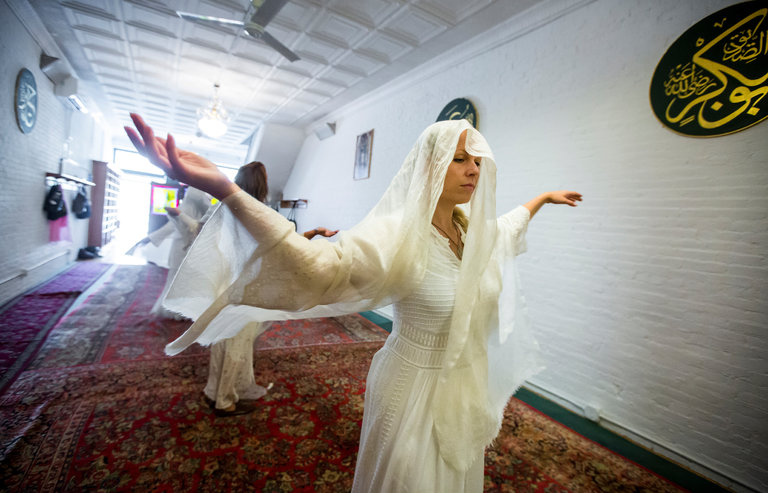
Habiba Farah during a whirling ceremony practiced by a Sufi order in TriBeCa that is led by a female sheikh. Nicole Craine/ The New York Times
The New York Times‘ recent piece on Sufism focuses on the religious path of 10 beloveds (as they like to call one another) and their developing personal connection with Islam.
“Many Americans anxious about domestic terrorism, however, are not interested in the nuances of various branches of Islam,” reporter Adela Suliman writes. “And paradoxically, Sufis are often shunned by conservative Islam — the sect is dismissed as a diluted version of the faith, prioritizing the esoteric over the orthodox.”
Suliman writes about Bjorn Bolinder, one of the members of the small community, who came to New York from Minnesota with dreams of performing on Broadway. “I had no experience of joy or aliveness,” he told the Times. Bolinder began looking for religion in his mid-20s and came across Sufism through self-help spirituality books as well as a healing therapist.
“I suddenly realized that maybe this is God, not whatever I learned in church,” he said. “I felt like a completely different person. It was just so beautiful … I feel sad for Muslims who don’t acknowledge Sufism as part of the breadth of the divine. We are all one. They’re missing out.”
4. Muslim YouTuber’s Hijab Series Is Refreshingly Honest … And Hilarious
Youtube personality Tazzy Phe is loved by her fans for her smart, deadpan style humor and her ability to speak honestly about what it’s like to be a young American Muslim woman during a period when Islamophobia is at an all-time high.
The vlogger is all about #realtalk as she describes her experiences — talking about how women who wear the hijab get their hair cut, what happens when a guy accidentally see her without her hijab and how he non-Muslim female friends ooh and aah the first time they see her hair.
“Honestly, I myself get so sick of speaking about this subject [the hijab], but I feel like so many people always have questions and it’s not something I can avoid and it’s just part of my life,” the vlogger says. “And so I’m hoping by getting this off my chest and trying to create a comprehensive video series, I’ll no longer have anything else to say about the subject.”
[tweetthis]YouTube personality Tazzy Phe says her videos are mean to “challenge the two-dimensional image that exists around people who look like [her].”[/tweetthis]
5. Malaysia launches logo for products made purely by Muslims
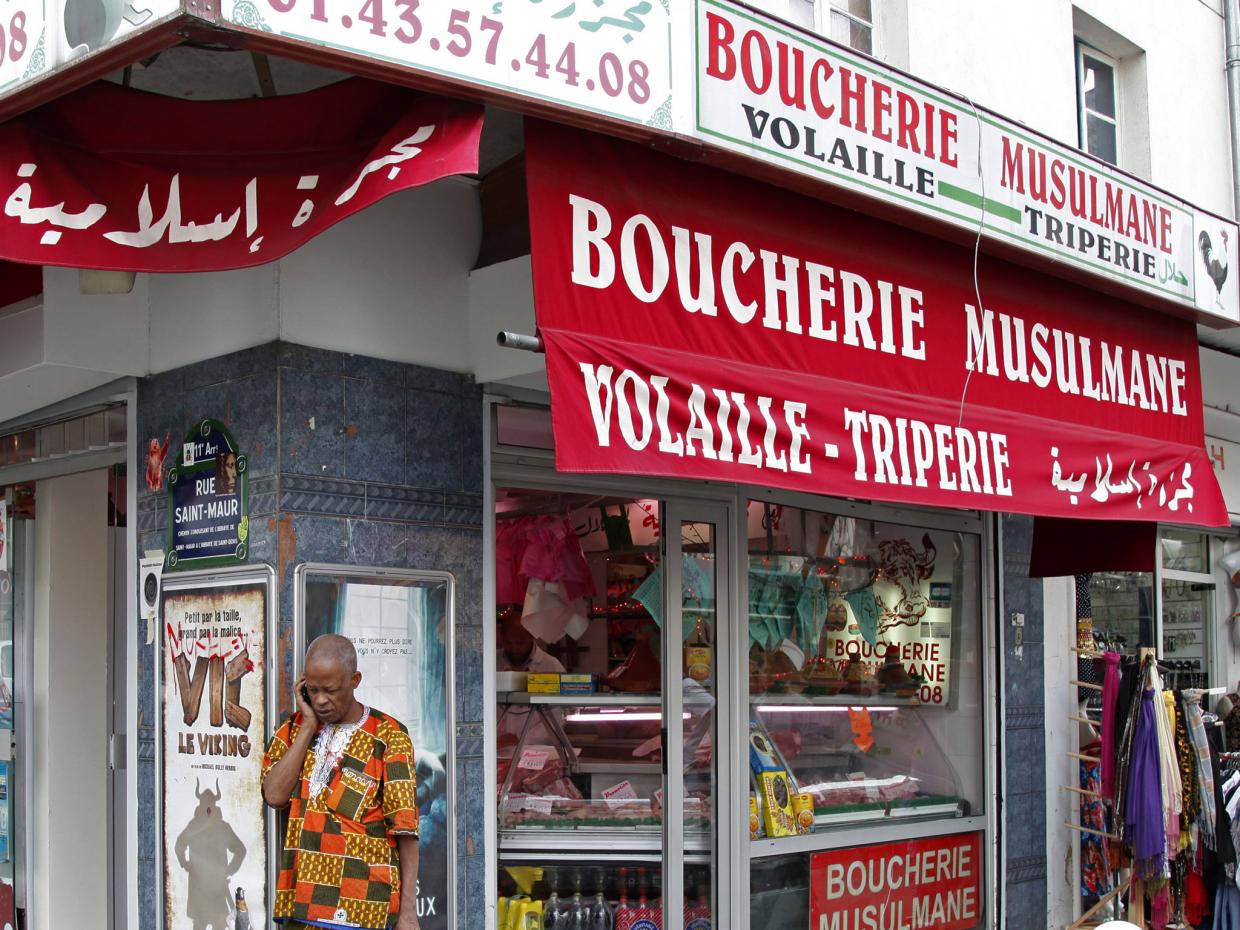
A halal butcher shop in Paris. The initiative will help tap in to the global halal market Photo/Reuters
A Malaysian organization has rolled out a new logo in an effort to denote which products are made by Muslim businesses and business owners.
According to the Independent, the Malaysian Institute of International Islamic Corporation (Ikiam), in connection with the Malaysian Rubber Industry Smallholders Development Authority (Risda), say the logo will be designed and put into production by early next year.
The Department of Islamic Development Malaysia currently already has an official halal logo for products manufactured in the country, but an Ikiam spokesperson told the Independent that the new designation will help clarify some things for consumers. The new logo will denote if products were made in a halal environment due to previous concerns that some companies were bending the rules.
“The need for another halal logo is to distinguish products that were produced by Muslims against that of non-Muslims … [to help] Muslim entrepreneurs make forays into the halal markets locally and abroad,” Risda chair Zahidi Zainul Abidin told the Independent.
[tweetthis]altM’s weekly roundup of news[/tweetthis]
This list was curated by Kaitlin Montgomery, altM News Editor

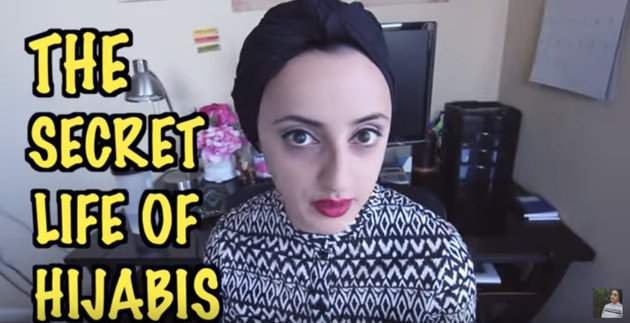
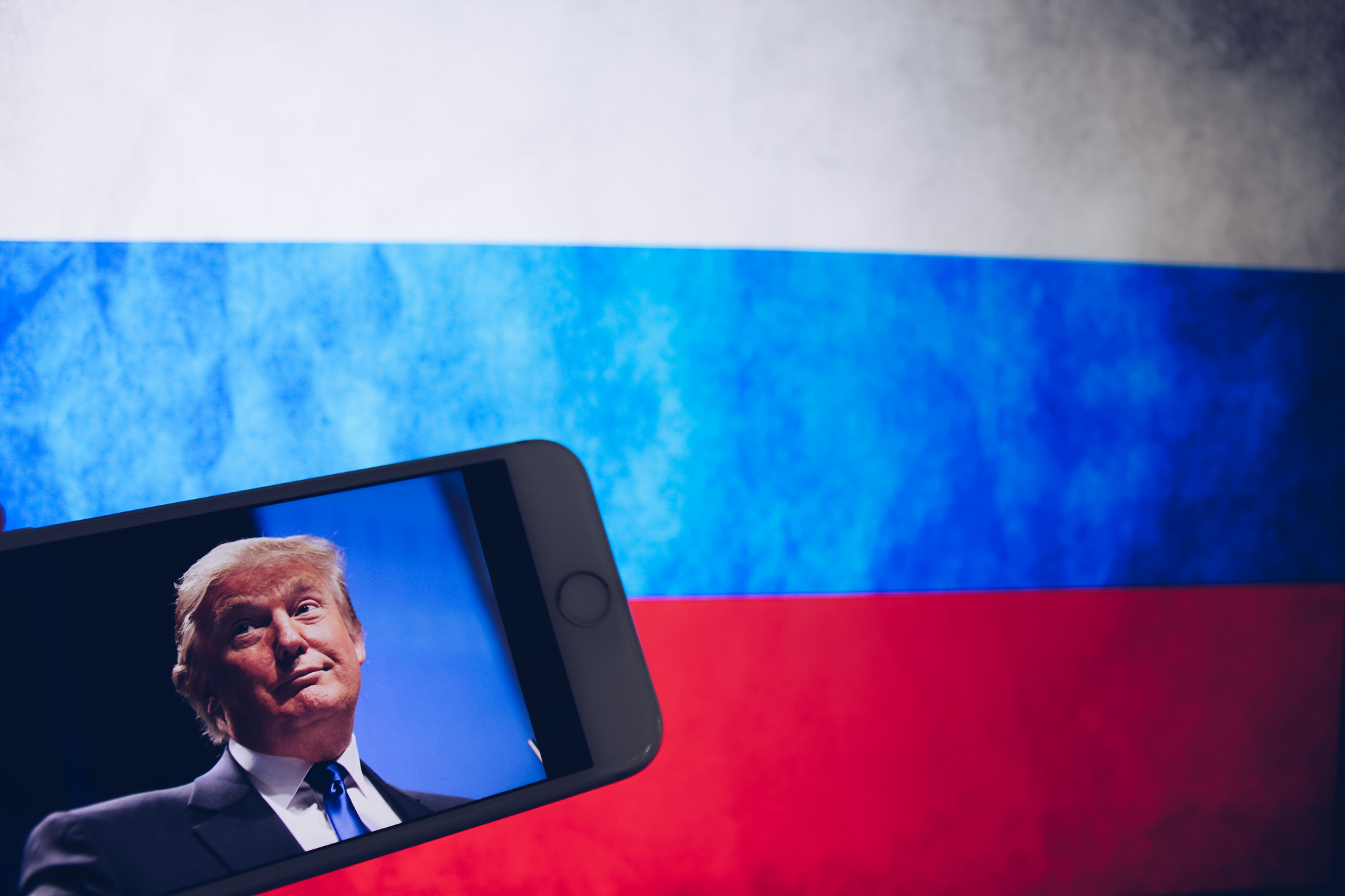
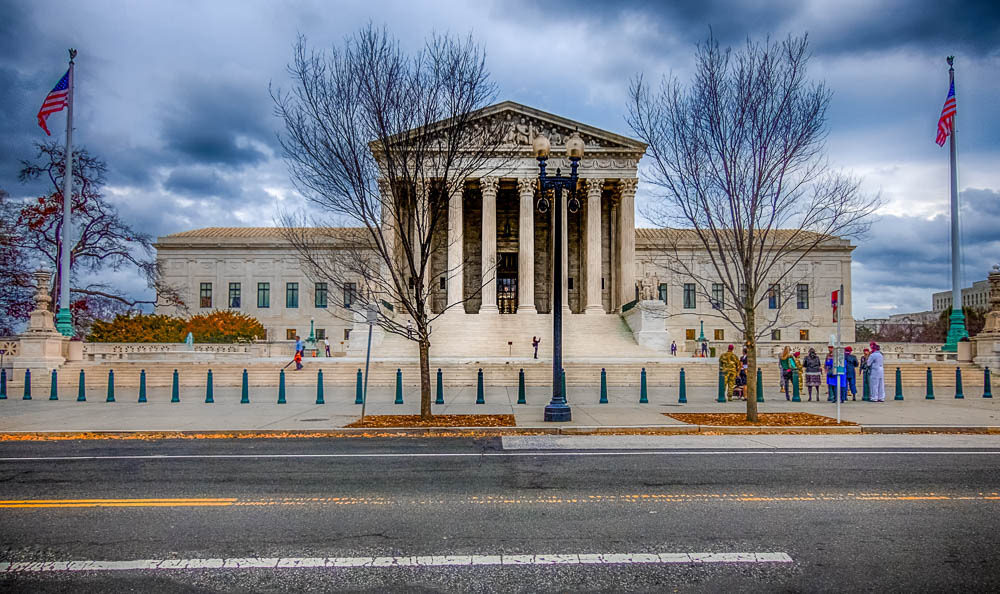

Three out of five news items relate to hijab again.
An Interesting Read.